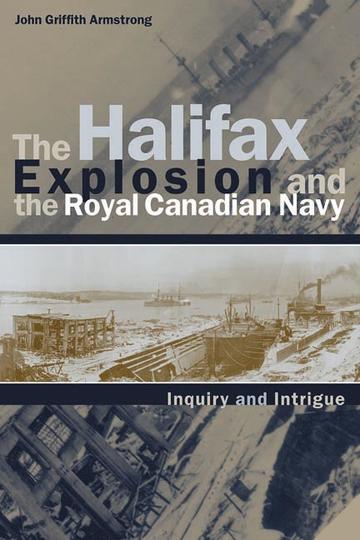About BC Books Online
BC Books Online was created for anyone interested in BC-published books, and with librarians especially in mind. We'd like to make it easy for library staff to learn about books from BC publishers - both new releases and backlist titles - so you can inform your patrons and keep your collections up to date.
Our site features print books and ebooks - both new releases and backlist titles - all of which are available to order through regular trade channels. Browse our subject categories to find books of interest or create and export lists by category to cross-reference with your library's current collection.
A quick tip: When reviewing the "Browse by Category" listings, please note that these are based on standardized BISAC Subject Codes supplied by the books' publishers. You will find additional selections, grouped by theme or region, in our "BC Reading Lists."
The Halifax Explosion of 1917 is a defining event in the Canadian consciousness, yet it has never been the subject of a sustained analytical history. Astonishingly, until now no one has consulted the large federal government archives that contain first-hand accounts of the disaster and the response of national authorities. Canada's recently established navy was at the epicentre of the crisis. Armstrong reveals the navy's compelling, and little-known, story by carefully retracing the events preceding the disaster and the role of the military in its aftermath. He catches the pulse of disaster response in official Ottawa and provides a compelling analysis of the legal manoeuvres, rhetoric, blunders, public controversy, and crisis management that ensued. His disturbing conclusion is that federal officials knew of potential dangers in the harbour before the explosion, took no corrective action, and kept the information from the public.
John Griffith Armstrong is a retired career officer who taught history at the Royal Military College of Canada and was part of the team at the Department of National Defence’s Directorate of History that wrote volume 3 of The Official History of the RCAF.
- Short-listed, Keith Matthews Prize, Canadian Nautical Research Society
- Winner, John Lyman Book Award, North American Society for Oceanic History
- Short-listed, Margaret and John Savage First Book Award, Atlantic Writing Awards
- Short-listed, Dartmouth Non-Fiction Book Award, Atlantic Writing Awards
While the disaster has been subject of several popular histories, until now, the event has not been given the detailed scholarly study required to sweep away myth and provide an accurate account of what took place. John Griffith Armstrong has undertaken the first such academic work, and it is a very good study indeed. Armstrong’s focus is the role of the Royal Canadian and Royal navies in the events leading up to the explosion, its aftermath, and the investigations that followed. By shifting the attention of the reader away from the calamity that befell the city, Armstrong has provided a remarkable fresh look into the explosion.
Armstrong’s account and analysis adds considerably to our knowledge not only of the explosion, but also of the influence of the media, and the concerns of Ottawa. Having spent years in the latter as an official historian, the author has had first-hand knowledge of how covers-up work.



